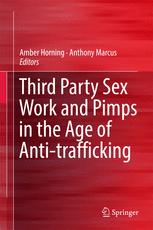

Most ebook files are in PDF format, so you can easily read them using various software such as Foxit Reader or directly on the Google Chrome browser.
Some ebook files are released by publishers in other formats such as .awz, .mobi, .epub, .fb2, etc. You may need to install specific software to read these formats on mobile/PC, such as Calibre.
Please read the tutorial at this link: https://ebookbell.com/faq
We offer FREE conversion to the popular formats you request; however, this may take some time. Therefore, right after payment, please email us, and we will try to provide the service as quickly as possible.
For some exceptional file formats or broken links (if any), please refrain from opening any disputes. Instead, email us first, and we will try to assist within a maximum of 6 hours.
EbookBell Team

5.0
100 reviewsThis volume is a compilation of new original qualitative and ethnographic research on pimps and other third party facilitators of commercial sex from the developed and developing world. From African-American pimps in the United States and Eastern European migrants in Germany to Brazilian cafetãos and cafetinas this volume features the lives and voices of the men and women who enable diverse and culturally distinct sex markets around the world. In scholarly, popular, and policy-making discourses, such individuals are typically viewed as larger-than-life hustlers, violent predators, and brutal exploiters. However, there is actually very little empirical research-based knowledge about how pimps and third party facilitators actually live, labor, and make meaning in their everyday lives. Nearly all previous knowledge derives from hearsay and post-hoc reporting from ex-sex-workers, customers, police and government agents, neighbors, and self-aggrandizing fictionalized memoirs.
This volume is the first published compilation of empirically researched data and analysis about pimps and third parties working in the sex trade across the globe. Situated in an age of highly punitive and ubiquitous global anti-trafficking law, it challenges highly charged public policy stereotypes that conflate pimping and sex trafficking, in order to understand the lived experience of pimps and the men and women whose work they facilitate.